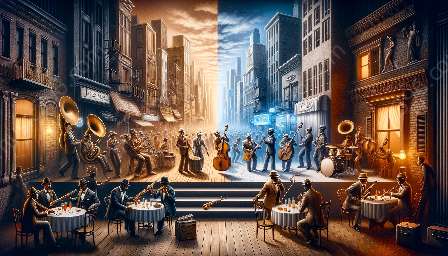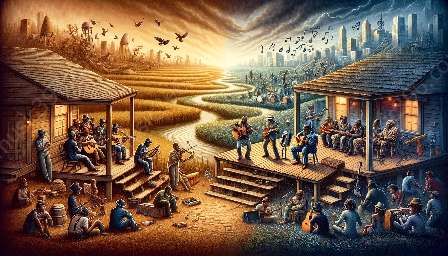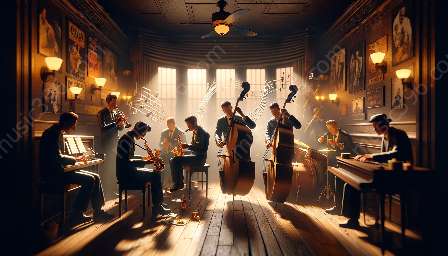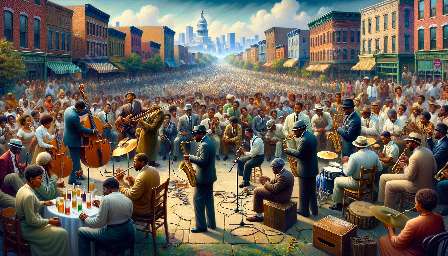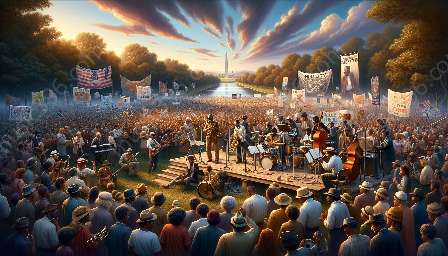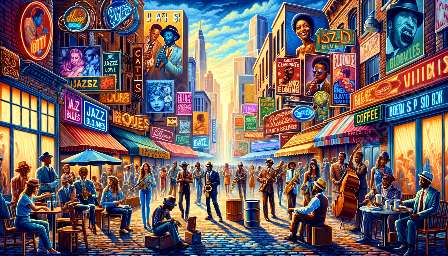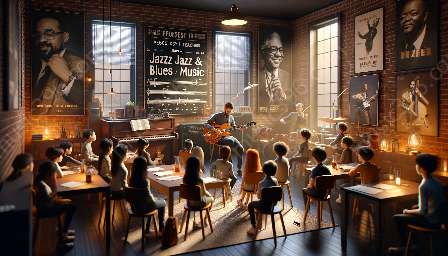Jazz and blues music have deep and intricate connections with the Civil Rights Movement, both reflecting and shaping the sociopolitical landscape. Understanding the evolution of jazz and blues over the centuries provides a compelling lens through which to examine their relationship with the Civil Rights Movement.
Evolution of Jazz and Blues Over the Centuries
Jazz and blues are two distinct musical genres that emerged in the late 19th and early 20th centuries, shaped by the experiences of African Americans and their descendants. Blues, characterized by its melancholic melodies and soulful lyrics, originated from the Mississippi Delta, while jazz, with its innovative improvisation and syncopated rhythms, took root in New Orleans and later spread across the United States.
As these genres evolved, they intersected with the social, political, and economic realities of the time. The blues served as a medium for expressing the hardships and struggles faced by African Americans, while jazz became a symbol of resilience and cultural identity. Both genres provided a voice for marginalized communities, offering a means of articulating and confronting oppression.
Jazz & Blues
Jazz and blues are often thought of as closely related musical forms, sharing common roots and influencing each other in profound ways. The improvisational nature of jazz can be traced back to the call-and-response patterns of blues music, and many jazz standards are based on traditional blues structures. Furthermore, both genres have historically been performed in establishments that catered to African American audiences, creating spaces for artistic and cultural expression within segregated societies.
The stylistic evolution of jazz and blues reflects the broader sociocultural shifts that occurred throughout the 20th century. From the swing era of the 1920s and 1930s to the bebop revolution of the 1940s, jazz underwent significant changes, embracing new harmonic and rhythmic concepts while remaining deeply rooted in the blues tradition. Similarly, the blues evolved from its rural acoustic origins to electrified urban styles, adapting to urbanization and modernization while retaining its emotional depth and authenticity.
The Connections Between Jazz and Blues Music and the Civil Rights Movement
The connections between jazz and blues music and the Civil Rights Movement are multifaceted and profound. Both genres served as a sonic backdrop for the struggle for racial equality, giving voice to the experiences of African Americans and catalyzing social change. Blues songs such as Bessie Smith's 'Backwater Blues' and Lead Belly's 'Jim Crow Blues' poignantly depicted the impact of segregation and discrimination, resonating with listeners who shared similar experiences.
Jazz, too, played a pivotal role in the Civil Rights Movement, harnessing improvisation and collective expression to convey messages of unity and empowerment. Musicians like Duke Ellington, Billie Holiday, and John Coltrane crafted compositions that challenged the status quo and confronted systemic injustice. Furthermore, the integration of jazz ensembles and audiences across racial lines provided tangible manifestations of racial harmony and equality, defying the racial divisions of the era.
As the Civil Rights Movement gained momentum, jazz and blues became anthems of resistance and resilience. Nina Simone's rendition of 'Strange Fruit' and Billie Holiday's haunting performance of the same song encapsulated the anguish and horror of lynching, poignantly calling attention to the racial terror perpetuated against African Americans. Meanwhile, the blues-inflected protest songs of artists like Muddy Waters and Howlin' Wolf voiced the frustrations and demands of a community yearning for justice and equality.
Moreover, jazz and blues musicians actively participated in civil rights activism, using their platforms to raise awareness and champion social causes. Their performances at rallies, fundraisers, and marches provided a unifying force, fostering solidarity and mobilizing communities in the pursuit of civil rights. The iconic role of jazz and blues in shaping the ethos of the Civil Rights Movement underscores their enduring impact on American society and culture.
Conclusion
Jazz and blues music have been inseparable from the narrative of the Civil Rights Movement, embodying the spirit of resilience, defiance, and hope during tumultuous times. Through their evolution over the centuries, these genres have remained steadfast in their commitment to amplifying the voices of the marginalized and challenging systemic injustices. The enduring legacy of jazz and blues in the context of the Civil Rights Movement serves as a testament to the enduring power of music as a catalyst for social change and collective liberation.

